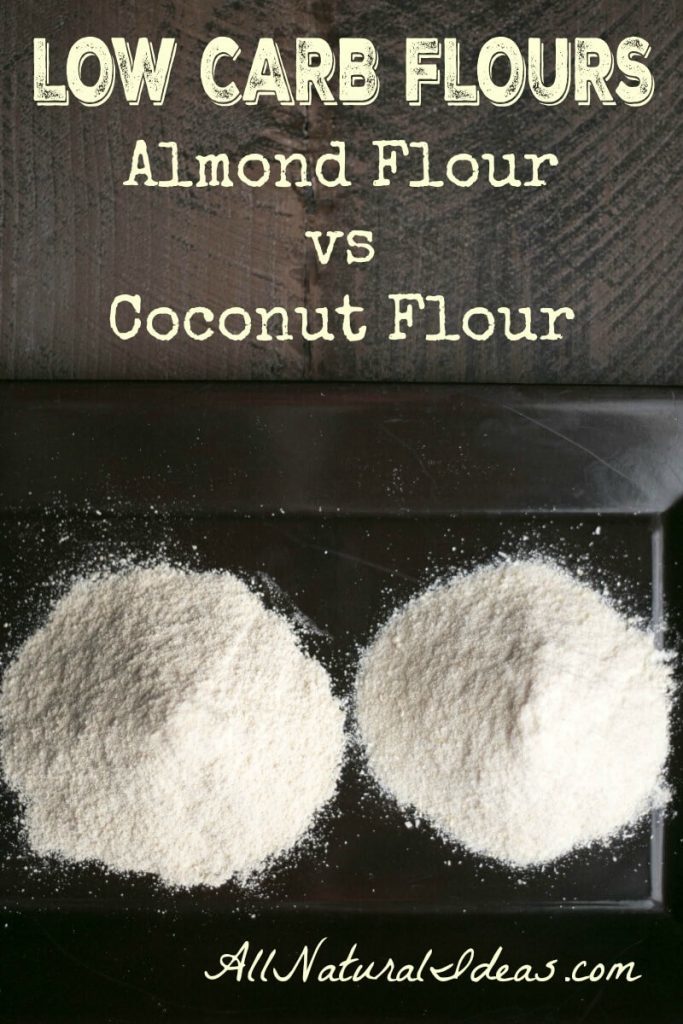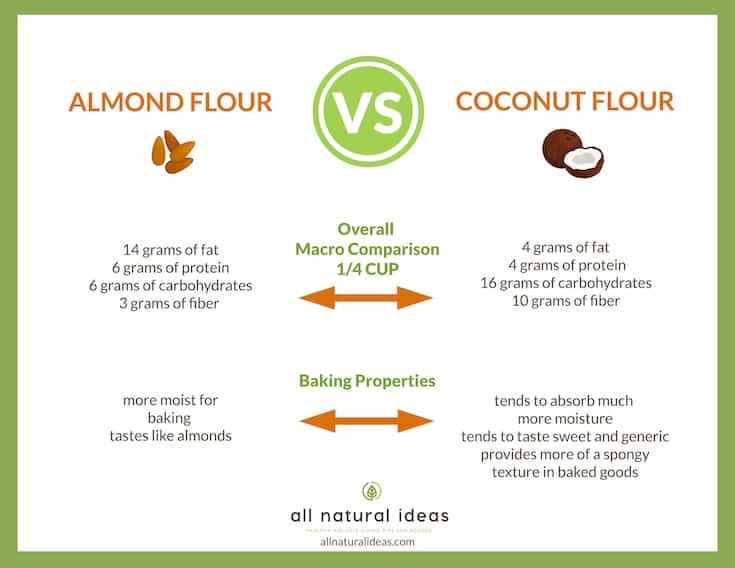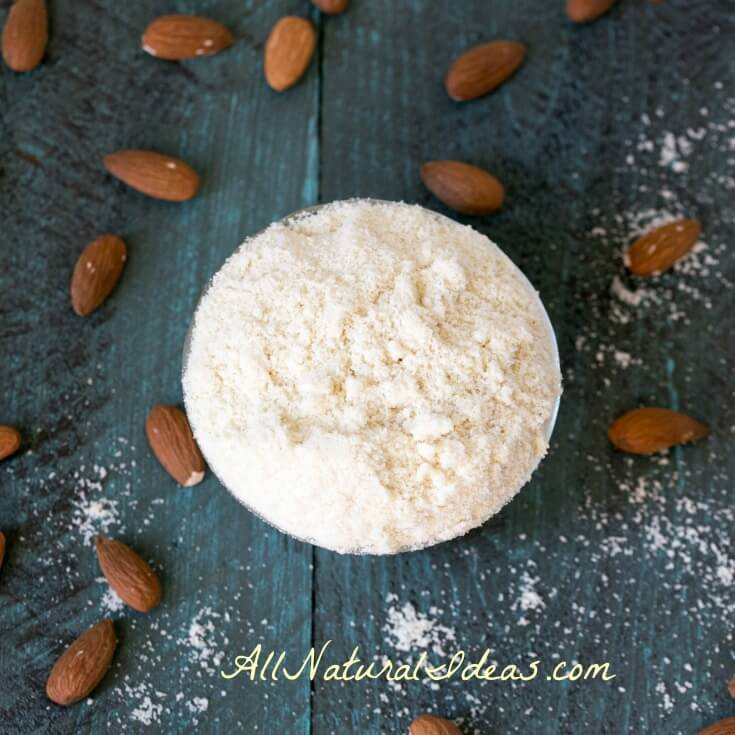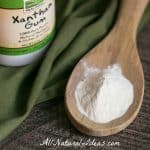The carbs in almond flour may seem low, but coconut flour might be a better alternative. Let’s compare the low carb flours so you can decide which one is best for you.

When moving over to a low carb diet, you’ll need an alternative to all-purpose flour in recipes. The most common substitutes are almond flour (also known as almond meal) and coconut flour. But many wonder which flour is better.
Before taking a closer look at these wheat flour substitutes, it’s important to note that neither should be a substitute for real meals. Meats and vegetables need to be your primary intake to acquire quality nutrients.
First, let’s take a look at the carbohydrate amounts in each of these low carb flours. But if you want to jump to a specific topic in this guide, you can use the links below:
Table of contents
Carbs in Almond Flour Vs Coconut Flour
Both coconut flour and almond flour are similar in macronutrient composition.
How Many Carbs in Coconut Flour?
Coconut flour has 4 grams of fat, 4 grams of protein, 16 grams of carbohydrates, and 10 grams of fiber for each 1/4 cup.
The recommended serving size for coconut flour is 2 tablespoons or 15 grams. And a serving has about 8 grams of carbs with 5 grams fiber and 1 gram sugar. So each serving has about 3 grams of net carbs.
How Many Carbs Does Almond Flour Have?
Almond flour is opposite of coconut flour. It has 14 grams of fat, 6 grams of protein, 6 grams of carbohydrates, and 3 grams of fiber for every 1/4 cup.
A serving of almond flour is about 3 tablespoons or 15 grams. And 2 grams is fiber and 1 gram is sugar. Therefore, net carbs per serving is only 1 gram.
Which One Is Better Based on Carbs?
If you are want the one lowest in carbs, almond flour appears to be the better alternative for keto recipes. However, the carbs in almond flour are not always lower. That’s because it’s not a one for one comparison.
You need to use three to four times as much almond flour than coconut flour. This is because coconut flour expands when liquid is added. Therefore, you don’t need to use as much as almond flour in similar recipes.

What About Fat Content?
This is an area where the two flours drift apart. Because coconut flour is defatted, it contains less per serving than almond flour. However, the fat in almonds isn’t ideal because it’s primarily Omega-6 fatty acids.
Unfortunately, statistics show that Americans consume way too much Omega-6’s in their every day diet. Thus, most don’t consume the proper Omega 3 6 9 ratio.
Some studies even suggest that eating high levels of Omega-6 fatty acids can lead to inflammation. So even though carbs in almond flour are low, the high amount of Omega-6 can result in excess inflammation.
Coconut flour may have less overall fat, but the fat it contains is much higher quality smart fat. Therefore, coconut flour has the better fat content because it’s less inflammatory.
Since keto is a high fat diet, most would say almond flour is the better flour to use. But if you are avoiding inflammatory foods, it’s better to use coconut flour unless you have a food sensitivity to it.
Coconut Flour and Almond Flour Nutrition
Both flours contain modest amounts of trace minerals. Coconut flour is a good source of iron, manganese, calcium, selenium, phosphorus, potassium, and copper. In almond flour you’ll find vitamin E, manganese, calcium, phosphorus, potassium, zinc, and magnesium.
Both low carb flours can provide various nutrients in your diet. But maybe you want to know the benefits of almonds or how coconut may help with Alzheimer’s disease. So click on those links to read more.

How Does Protein Compare?
A 15 gram serving of almond flour has about 3 grams of protein. Whereas a 15 gram serving of coconut flour has around 2 grams protein.
The protein levels between the two don’t differ by much. Almond flour has slightly more protein. So the type of flour that’s best for protein depends on your daily macro allowance. But with such a small difference, it shouldn’t matter.
How Many Calories in Almond Flour and Coconut Flour?
If you’re also watching your calories in addition to carbs, you may prefer coconut flour. That’s because there’s 90 calories in a 15 gram serving of almond flour while a 15 gram serving of coconut flour has just 60.
But do calories matter on keto? They sure do if you want to lose weight most efficiently. And the amount of calories burned each day depends on age, weight, height, gender, and activity level. So if you’re a small middle aged woman, you’ll need fewer calories than a taller man in his twenties.
Properties for Baked Recipes

After comparing the macronutrients for both low carb flours, you may be wondering which is better for baking. So let’s take a look at some of the differences.
Which One Tastes Best?
The two also have different tastes. Coconut flour tends to taste sweet and generic, whereas almond flour tastes like almonds.
How About Texture?
Coconut flour tends to absorb much more moisture than almond flour. This means that if the recipe does not have a lot of wet ingredients and you use coconut flour, the end product will be dry and crumbly.
You may like fact that coconut flour is less inflammatory and provides more of a light spongy texture in baked goods. Or maybe you prefer the lower amount of carbs in almond flour even though it tends to be more dense. But keep in mind that you may need to add xanthan gum or a xanthan gum substitute to obtain similar texture to baked goods with gluten.
Is One Better for Baking?
The decision on what low carb flour to use for baked goods is really up to the preferences of the cook and eater. One is not necessarily better than the other.
When looking for keto recipes, there are plenty of almond flour recipes as well as coconut flour recipes. So no matter which alternative to regular flour you go with, you’ll have no trouble finding homemade foods to make with it.

Are Carbs in Almond Flour Lower Than Other Low Carb Flours?
Before we can answer this question, we need to take a look at the other keto flour options. Let’s review the nutritional data for a few grain-free flours that are also low in carbs.
Flaxseed Meal
Ground flaxseed (also known as flax meal or flaxseed meal) is often used in low carb baked goods. It has 4 grams carbs, 3 grams protein, 6 grams fat, and 70 calories in each 14 gram serving.
Soy Flour
Many people on keto avoid soybeans because they are a legume and typically a GMO. But they are low in carbs, so you may be open to using soy flour.
Each 28 gram serving has about 8 grams carbs, 10 grams protein, 6 grams fat, and 120 calories.
Sesame Seed Flour
Although hard to find pre-made, you can always make your own sesame seed flourby making a finely ground meal from the seeds. A coffee grinder usually works well for this.
There’s roughly 10 grams carbs, 11 grams protein, 3 grams fat, and 107 calories in each 28 gram serving.

Sunflower Seed Flour
Similarly to sesame seed flour, you may have to make your own sunflower seed flour by finely grinding the seeds at home. This flour is a fantastic substitute for almond flour for those with a nut-allergy.
Sunflower seed flour has about 6 grams carbs, 6 grams protein, 14 grams fat. and 160 calories in a 28 gram serving.
Oat Fiber
Because there’s zero net carbs, many use oat fiber as a low carb flour. Each 4 gram serving has 4 grams carbs, 0 grams protein, 0 grams fat, and 0 calories.
But when used as a flour, you’ll use more than the stated serving. And it may not be the best choice for those who have a severe allergy or sensitivity to gluten. That’s because it’s tough to find a brand certified gluten-free.
Conclusion
After reviewing data for all the popular low carb flours, the carbs in almond flour are still lowest. No wonder it’s become such a popular ingredient for low carb recipes.
Now that you know them a little better, which flour best suits your baking needs? Let us know by leaving a comment below.





